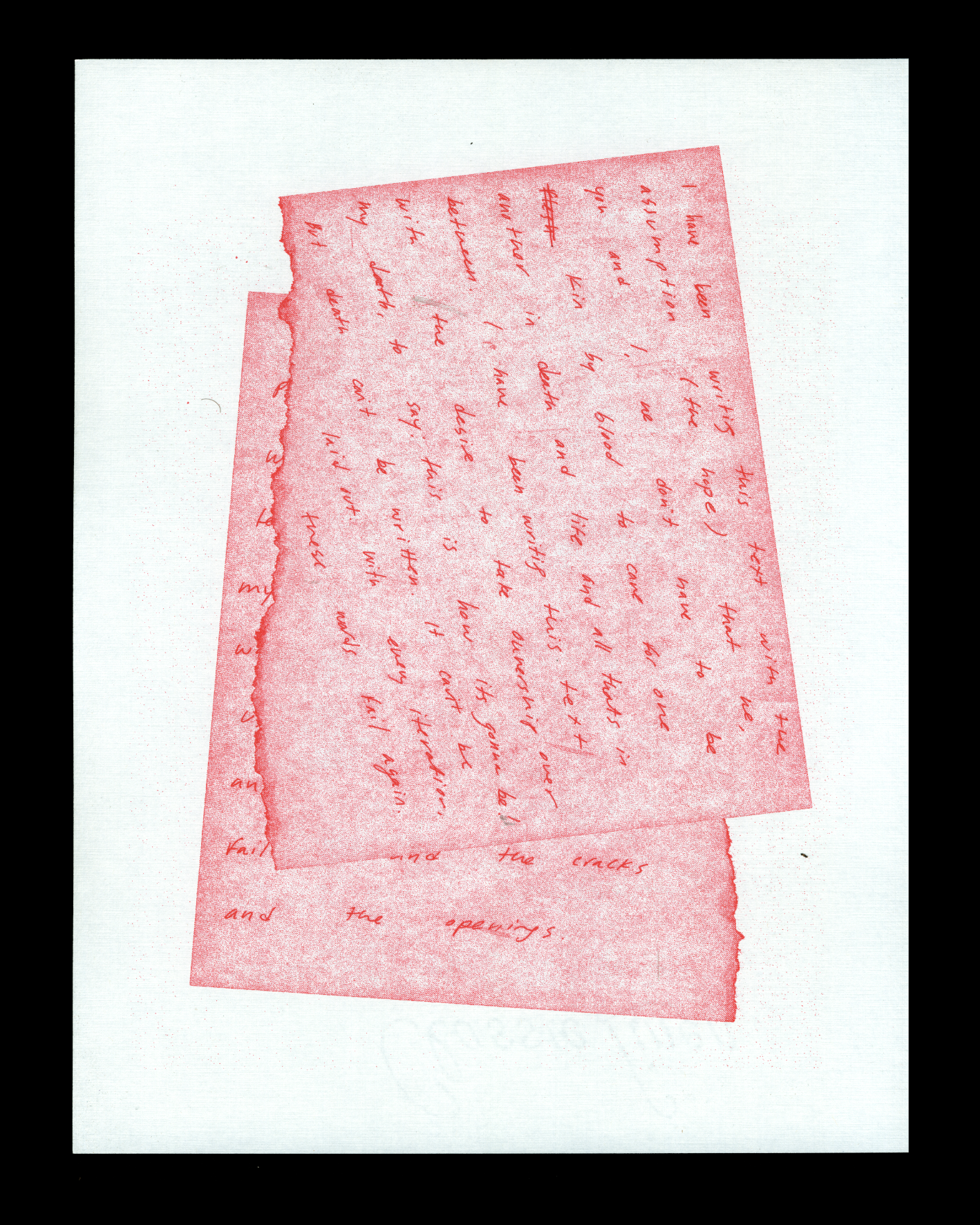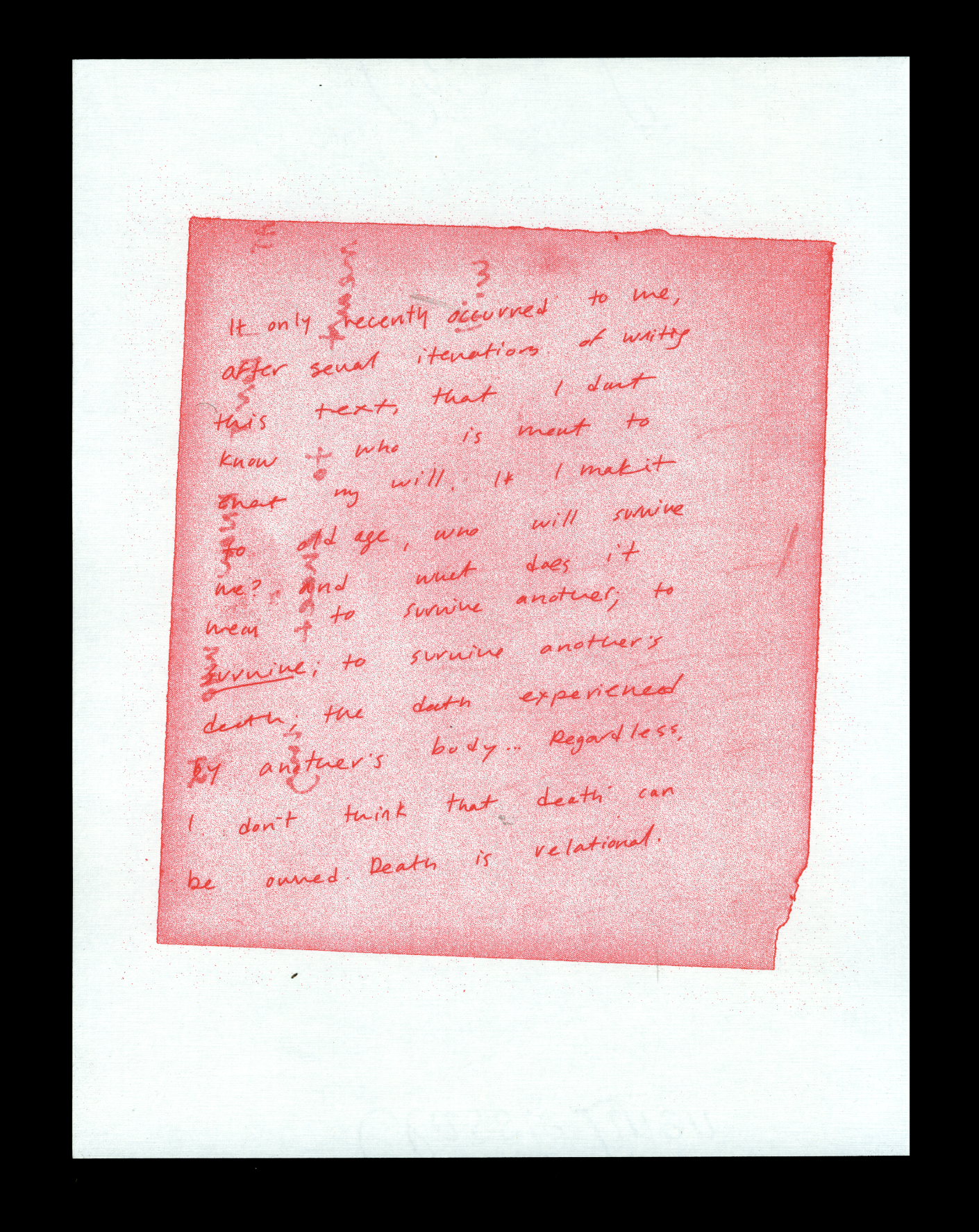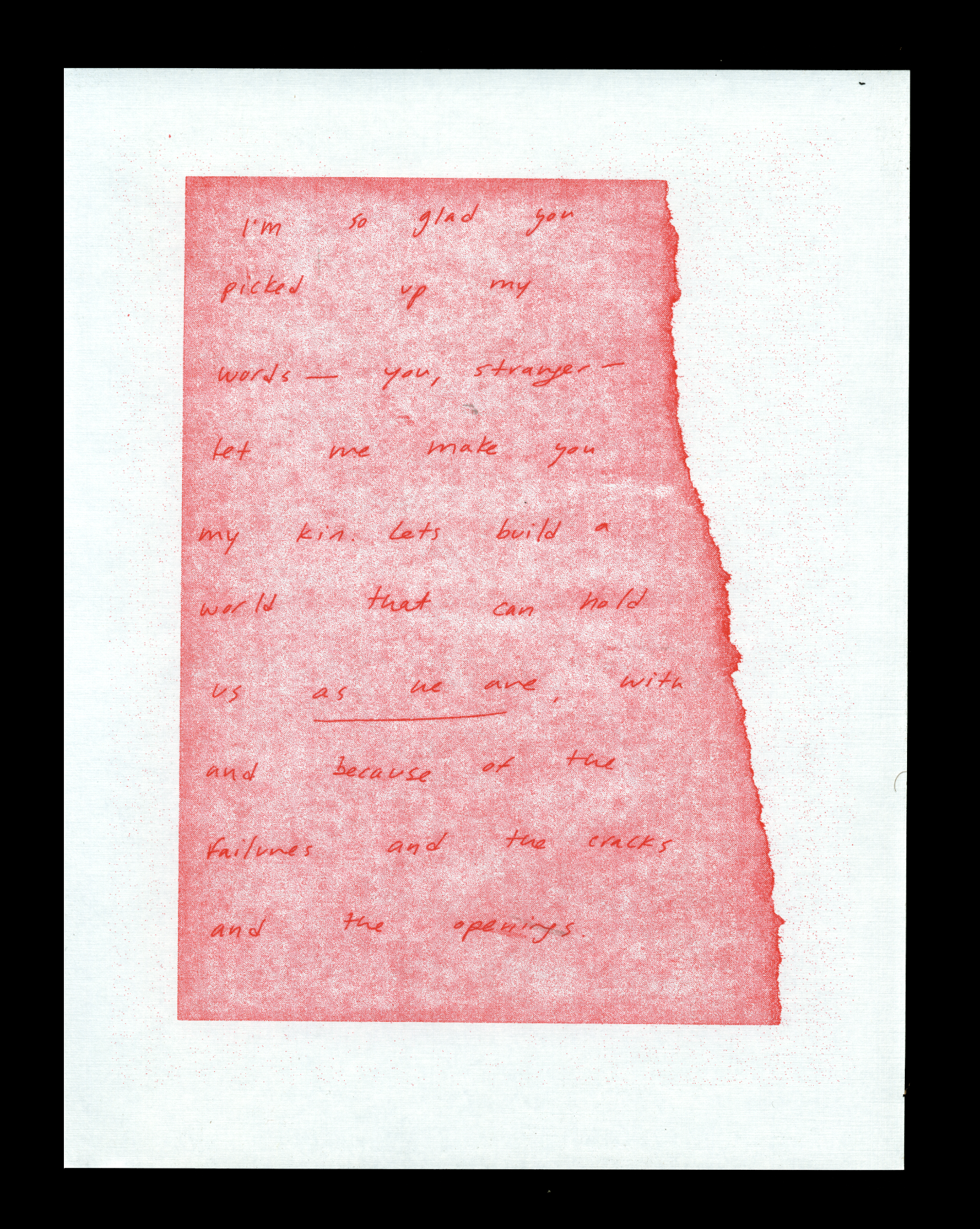You, Stranger, May I be your Kin? the Terms of my Death, in Perpetuity
San Deigo, Calfornia, Fall 2023
Mandeville Art Gallery at the University of California, San Deigo as part of How We Gather
Georgetown, Texas, Winter 2023
Southwestern University Art Gallery as part of Irresistable Revolutions
You, Stranger, May I be your Kin? the Terms of my Death, in Perpetuity is an aggregate collection of reflections, requests, actions, and objects that come together to forge Kimi Hanauer’s legally functioning will. This distributed text, which will be written and rewritten in perpetuity throughout the artist’s life, considers the terms of their death beyond static, capitalist conceptions of ownership and heteronormative familial structures. Rather than outlining specific terms, such as the transfer of certain belongings to certain people, the will implicates its readers as collaborators with the deceased, tasked with interpreting their dying desires. In neglecting to leave the responsibility of care for the deceased to any one person, the project attempts to transform its readers from strangers to kin. This act of faith–one which questions the parameters and preconditions for grief–emerges from a life that has been socially constructed as grievable. [1] The work assumes an unabashed belief in those who engage it to harness loss as a vehicle for remaking worlds rooted in collective care. [2]
In its first iteration, as part of the group exhibition, Irresistible Revolutions at Southwestern University Gallery, excerpts of the text and grief ritual objects are assembled as digital, xerox, and risograph-based print works and banners. For the second iteration of the work at How We Gather the Mandeville Art Gallery, visitors [strangers] are invited to read the text placed on the music stands aloud, either as an individual or as a group. Through distributable and site-specific forms, the will begins its process of unraveling in fragments across formal and informal intimate networks.
[1] Grievable life is a term used by Judith Butler in her writing on precarious life, notably, in her book, Precarious Life: the Powers of Mourning and Violence, among other works. In her article, “Precariousness and Grievability: When is life grievable?” (Brooklyn: Versobooks.com, 2015) Butler considers grievability to be a “presupposition for the life that matters.” In the article, she questions how certain lives are politically and socially constructed as grievable, and thus precarious and worthy of protection, while vast populations of others, often demarcated by lines of war, are constructed as, “not quite human, not quite alive, which means that we do not feel the same horror and outrage over the loss of their lives as we do over the loss of those lives that bear national or religious similarity to our own.” Butler goes on to question whose lives are constructed as publicly grievable by governments, whose lives aren’t, and the political and social ramifications of this differential distribution. In this context, public outrage and grief for lives which have not been politically constructed as grievable have the capacity to “disrupt the order and hierarchy of political authority...”
[2] This work is informed by Parsing Our Exits as Care: Queer Funerals and Post-Life Practicalities, a workshop facilitated by Emary Parisi with support from Bokeum Jeon in summer 2022, hosted by the Center for Liberatory Practice & Poetry, a nomadic education center stewarded by Kimi Hanauer.
In its first iteration, as part of the group exhibition, Irresistible Revolutions at Southwestern University Gallery, excerpts of the text and grief ritual objects are assembled as digital, xerox, and risograph-based print works and banners. For the second iteration of the work at How We Gather the Mandeville Art Gallery, visitors [strangers] are invited to read the text placed on the music stands aloud, either as an individual or as a group. Through distributable and site-specific forms, the will begins its process of unraveling in fragments across formal and informal intimate networks.
[1] Grievable life is a term used by Judith Butler in her writing on precarious life, notably, in her book, Precarious Life: the Powers of Mourning and Violence, among other works. In her article, “Precariousness and Grievability: When is life grievable?” (Brooklyn: Versobooks.com, 2015) Butler considers grievability to be a “presupposition for the life that matters.” In the article, she questions how certain lives are politically and socially constructed as grievable, and thus precarious and worthy of protection, while vast populations of others, often demarcated by lines of war, are constructed as, “not quite human, not quite alive, which means that we do not feel the same horror and outrage over the loss of their lives as we do over the loss of those lives that bear national or religious similarity to our own.” Butler goes on to question whose lives are constructed as publicly grievable by governments, whose lives aren’t, and the political and social ramifications of this differential distribution. In this context, public outrage and grief for lives which have not been politically constructed as grievable have the capacity to “disrupt the order and hierarchy of political authority...”
[2] This work is informed by Parsing Our Exits as Care: Queer Funerals and Post-Life Practicalities, a workshop facilitated by Emary Parisi with support from Bokeum Jeon in summer 2022, hosted by the Center for Liberatory Practice & Poetry, a nomadic education center stewarded by Kimi Hanauer.


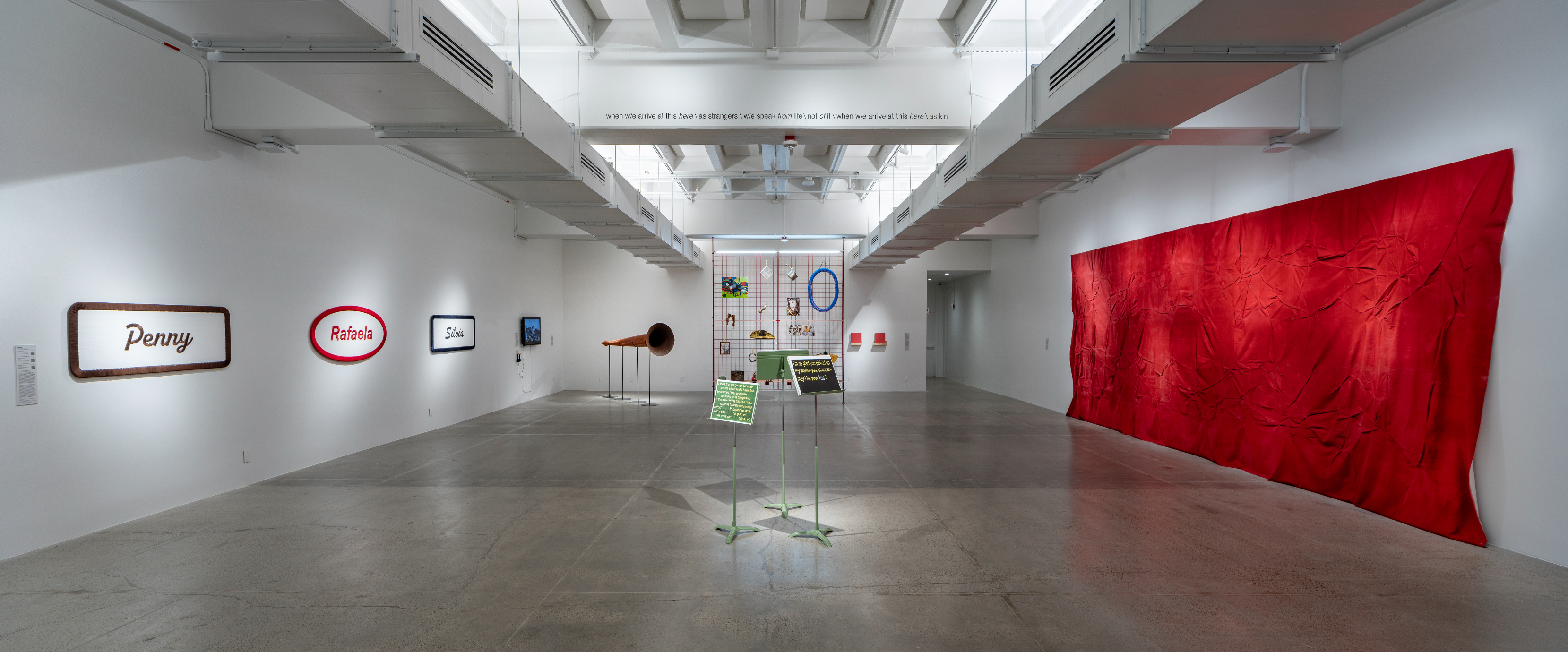



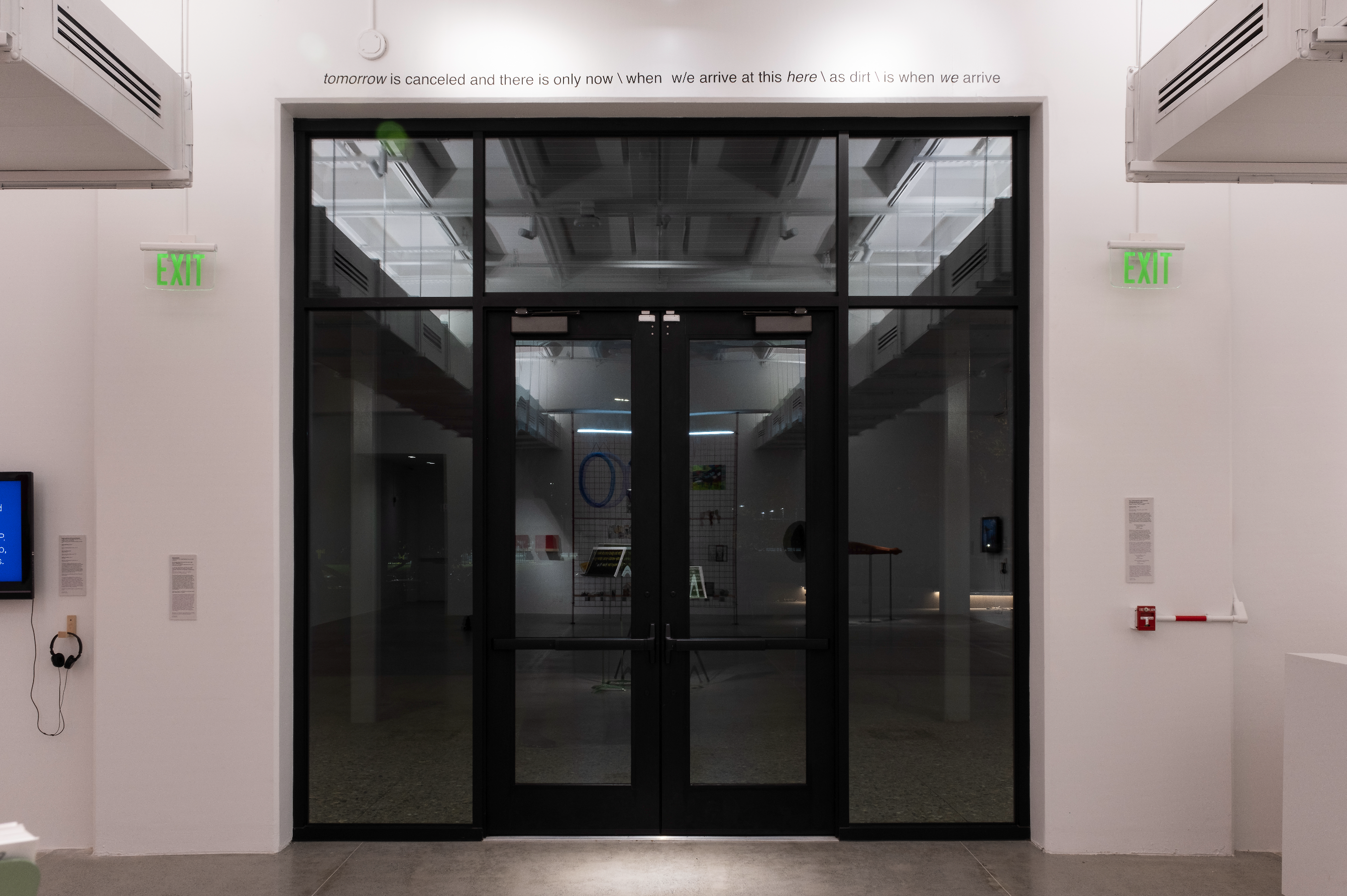
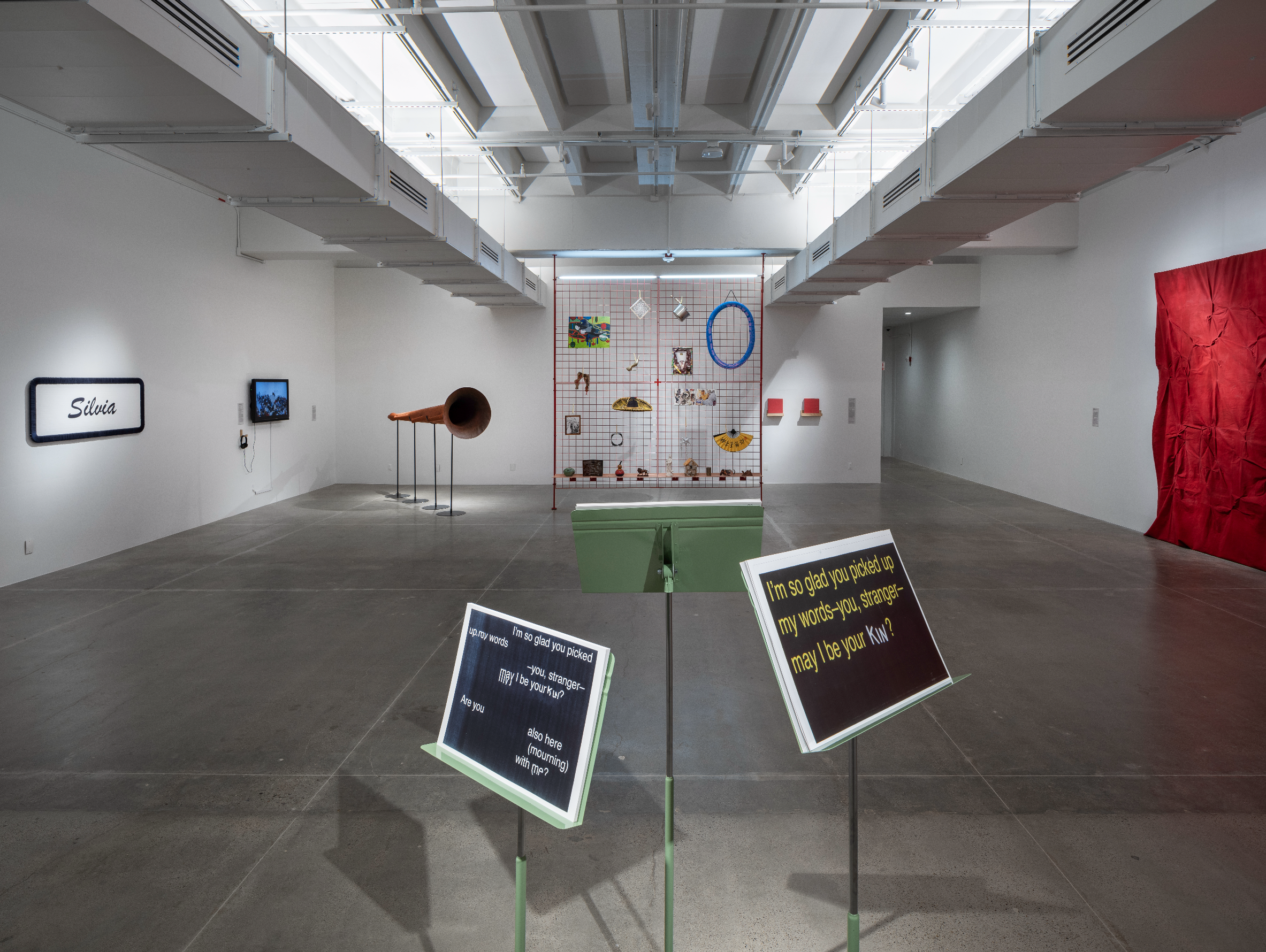
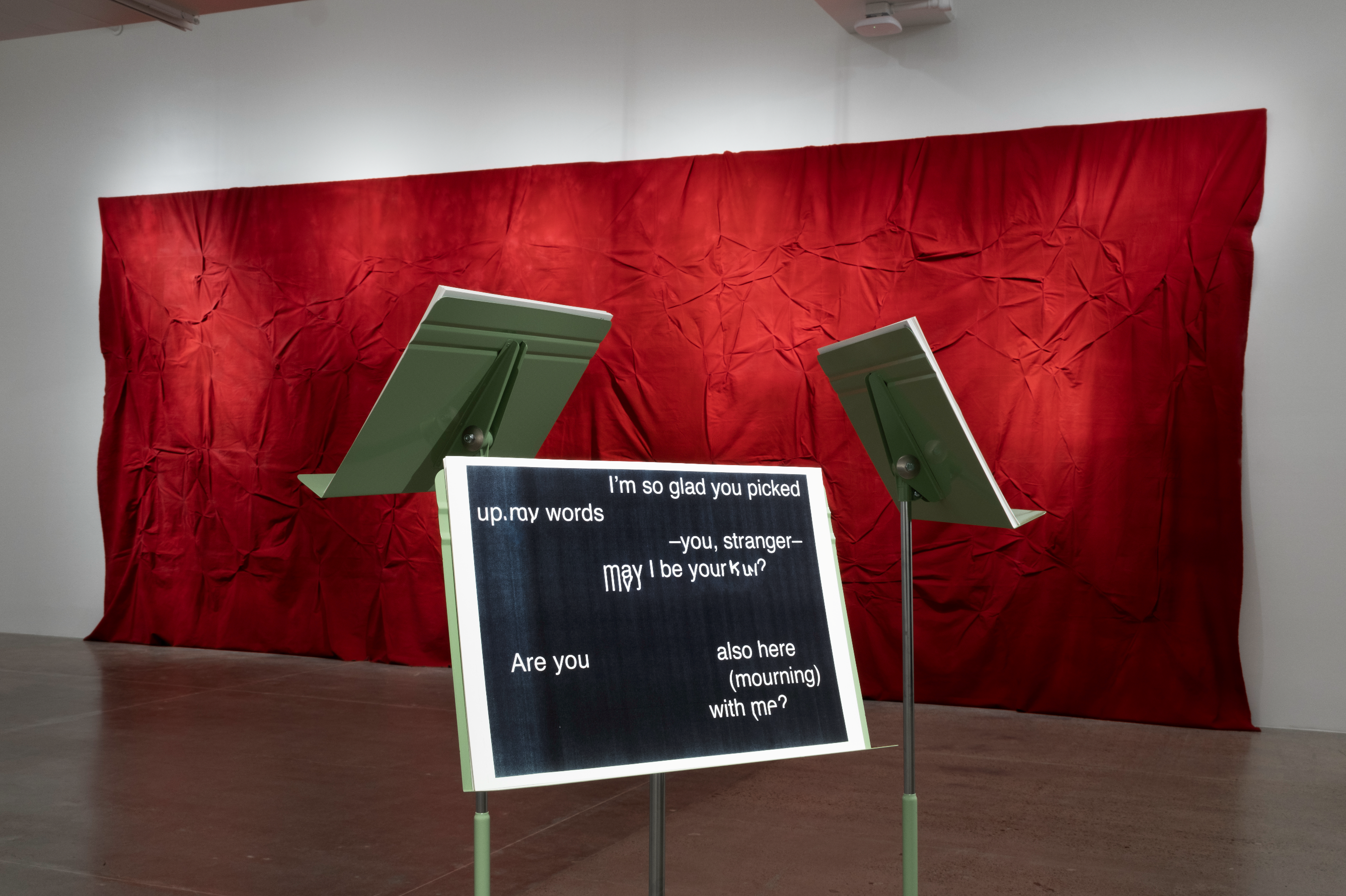
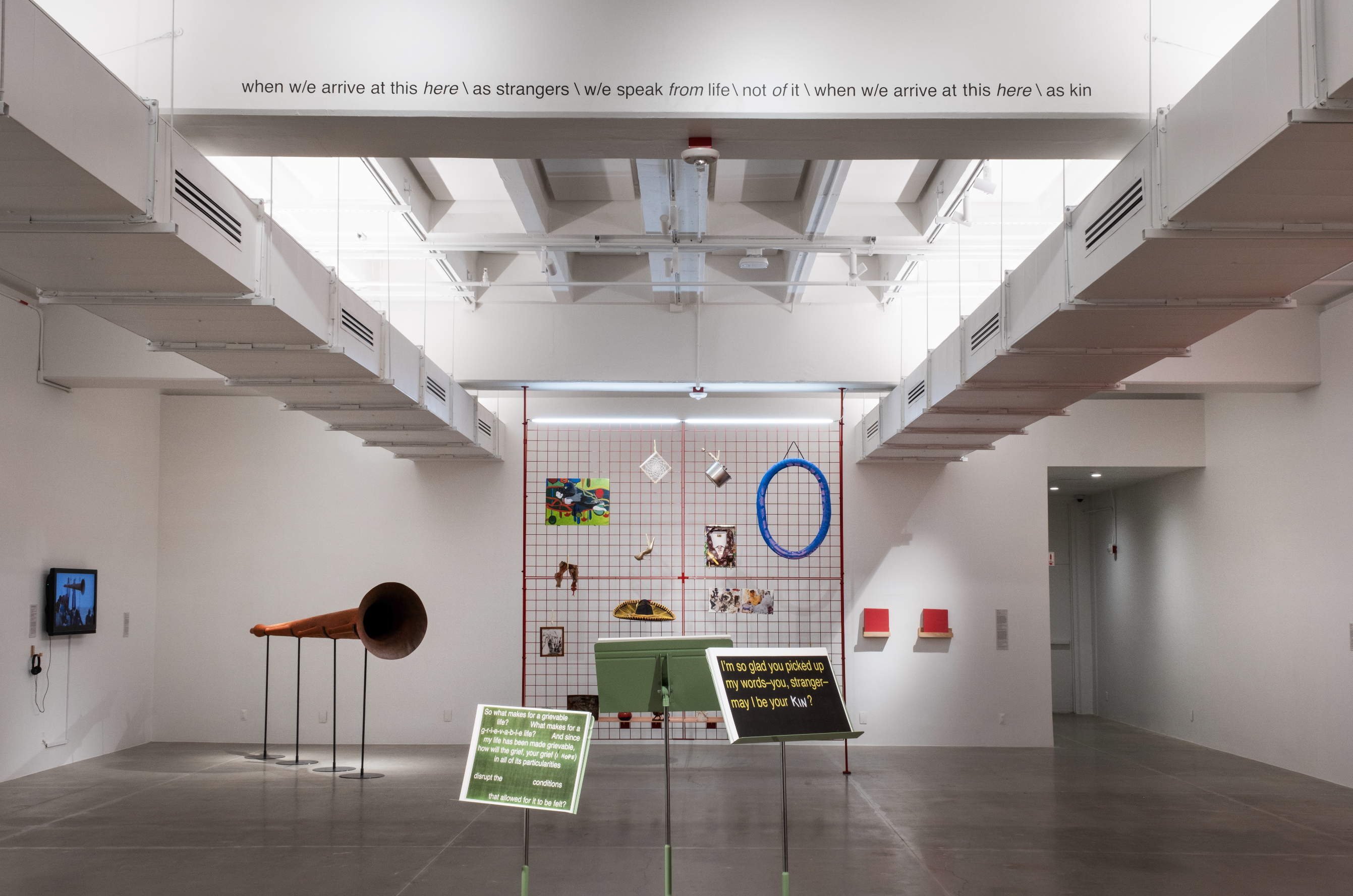
a spell for right now because tomorrow is canceled (oad to the invisible committee), vinyl text on entrance and exit walls, fall 2023

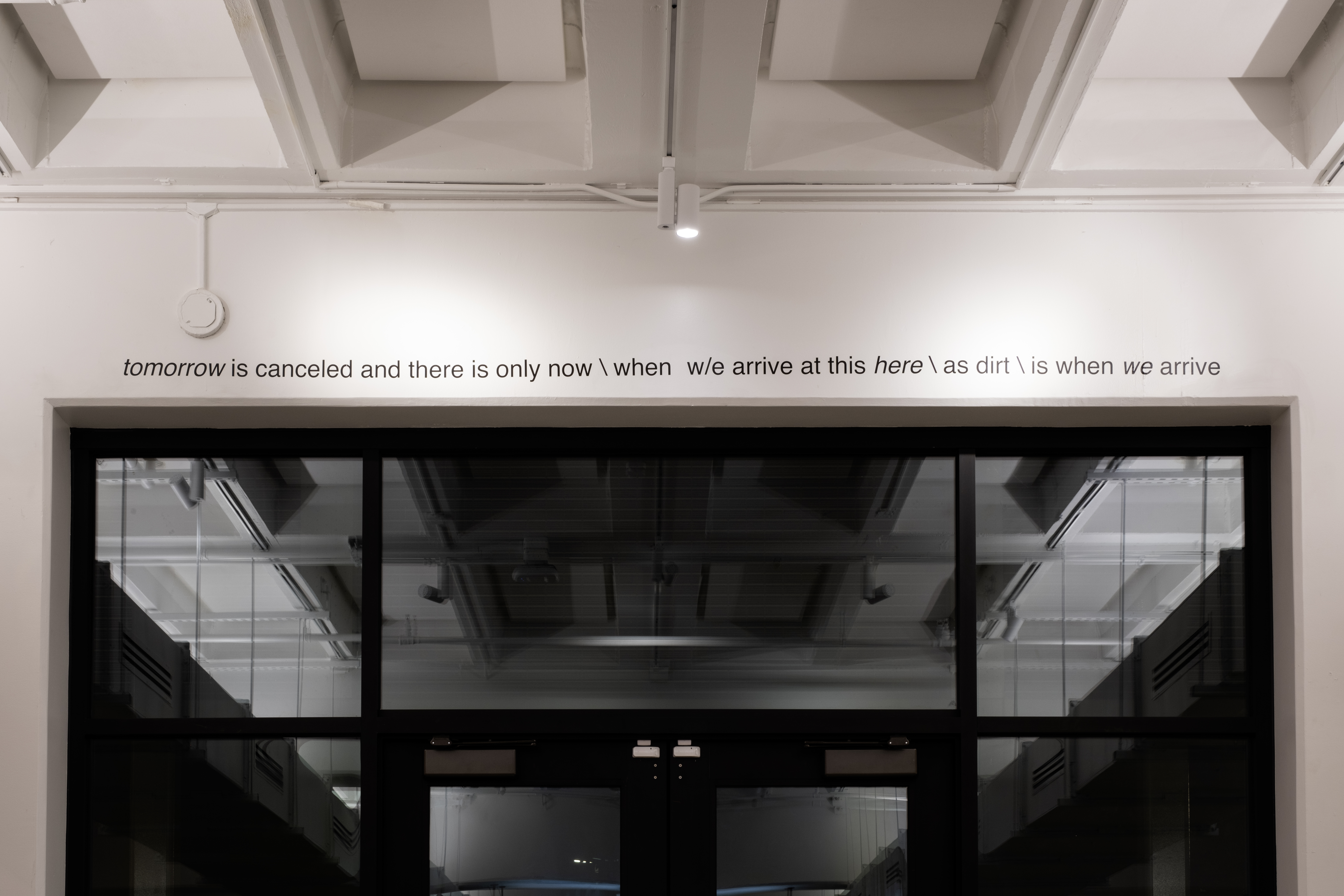
risograph prints, winter 2023
